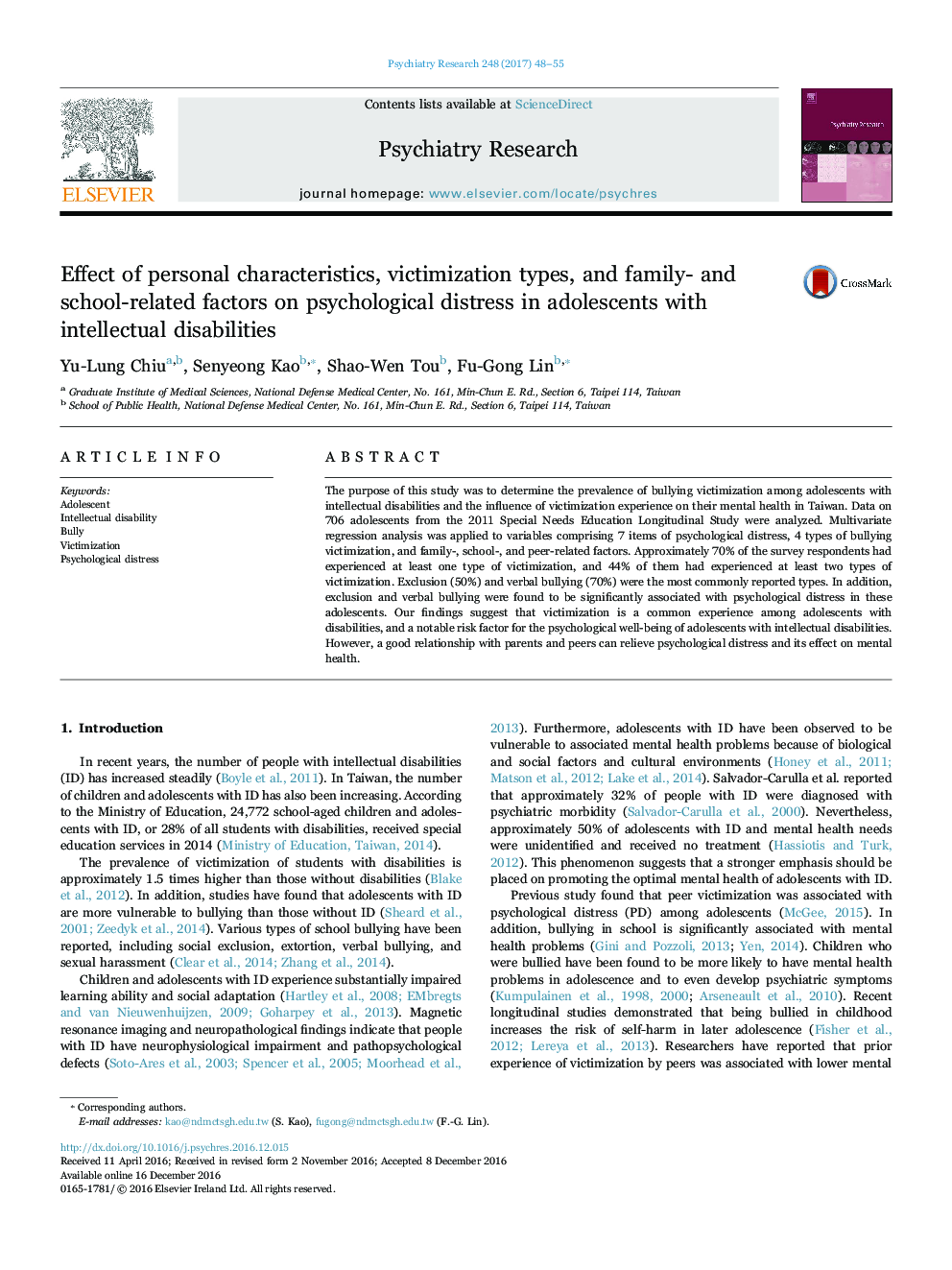| کد مقاله | کد نشریه | سال انتشار | مقاله انگلیسی | نسخه تمام متن |
|---|---|---|---|---|
| 4933614 | 1433798 | 2017 | 8 صفحه PDF | دانلود رایگان |
- Most adolescents with intellectual disabilities experience victimization.
- Exclusion and verbal bullies were the two most common types of victimization.
- Victimization experiences were related to psychological distress.
- A good relationship with parents and peers can reduce psychological distress.
The purpose of this study was to determine the prevalence of bullying victimization among adolescents with intellectual disabilities and the influence of victimization experience on their mental health in Taiwan. Data on 706 adolescents from the 2011 Special Needs Education Longitudinal Study were analyzed. Multivariate regression analysis was applied to variables comprising 7 items of psychological distress, 4 types of bullying victimization, and family-, school-, and peer-related factors. Approximately 70% of the survey respondents had experienced at least one type of victimization, and 44% of them had experienced at least two types of victimization. Exclusion (50%) and verbal bullying (70%) were the most commonly reported types. In addition, exclusion and verbal bullying were found to be significantly associated with psychological distress in these adolescents. Our findings suggest that victimization is a common experience among adolescents with disabilities, and a notable risk factor for the psychological well-being of adolescents with intellectual disabilities. However, a good relationship with parents and peers can relieve psychological distress and its effect on mental health.
Journal: Psychiatry Research - Volume 248, February 2017, Pages 48-55
